Unlike the nostalgic, dreamlike 1950s Vietnam of The Scent of Green Papaya (1993), Tran Anh Hung’s Cyclo paints a portrait of 1990s Saigon with drug trafficking, prostitution, gang culture and faces of those trapped in cycles of poverty. Its brutality was likely why the film was banned in Vietnam upon its release.
International audiences were far kinder: on September 9, 1995, Cyclo won the Golden Lion at the 52nd Venice International Film Festival, making Tran Anh Hung, at 33, one of the youngest filmmakers ever to receive the honor.
Amid substantial housing by the canals, neon-lit clubs, and slaughterhouses, Cyclo traces the nameless fates of a broken family.: The cyclo boy (Le Van Loc), pulled into the city’s gang underworld; his sister (Tran Nu Yen Khe), once a market vendor, now an escort. Their mother? Died after giving birth. Their father? Died of a cyclo accident. The two siblings’ lives intertwined with a female crime boss (Nhu Quynh) and a poet gangster (Tony Leung Chiu-wai).
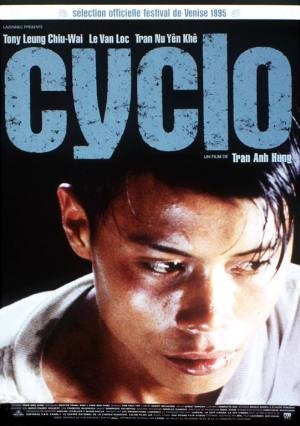
A life not of one’s own
After his cyclo is stolen, the boy is drawn into gang culture to pay off his debt: running cocaine, setting fires, taking on whatever jobs hide in the shadows. These tasks, brutal as they are, offer more money than pedalling through Saigon’s scorching streets. At one point, he pleads to join the gang: “Em muốn giống các anh,” (I want to become just like you guys) he says. That want vanquished after they took him to a torture session, showing them what they actually do, underneath the smuggling, loaning and providing protection.
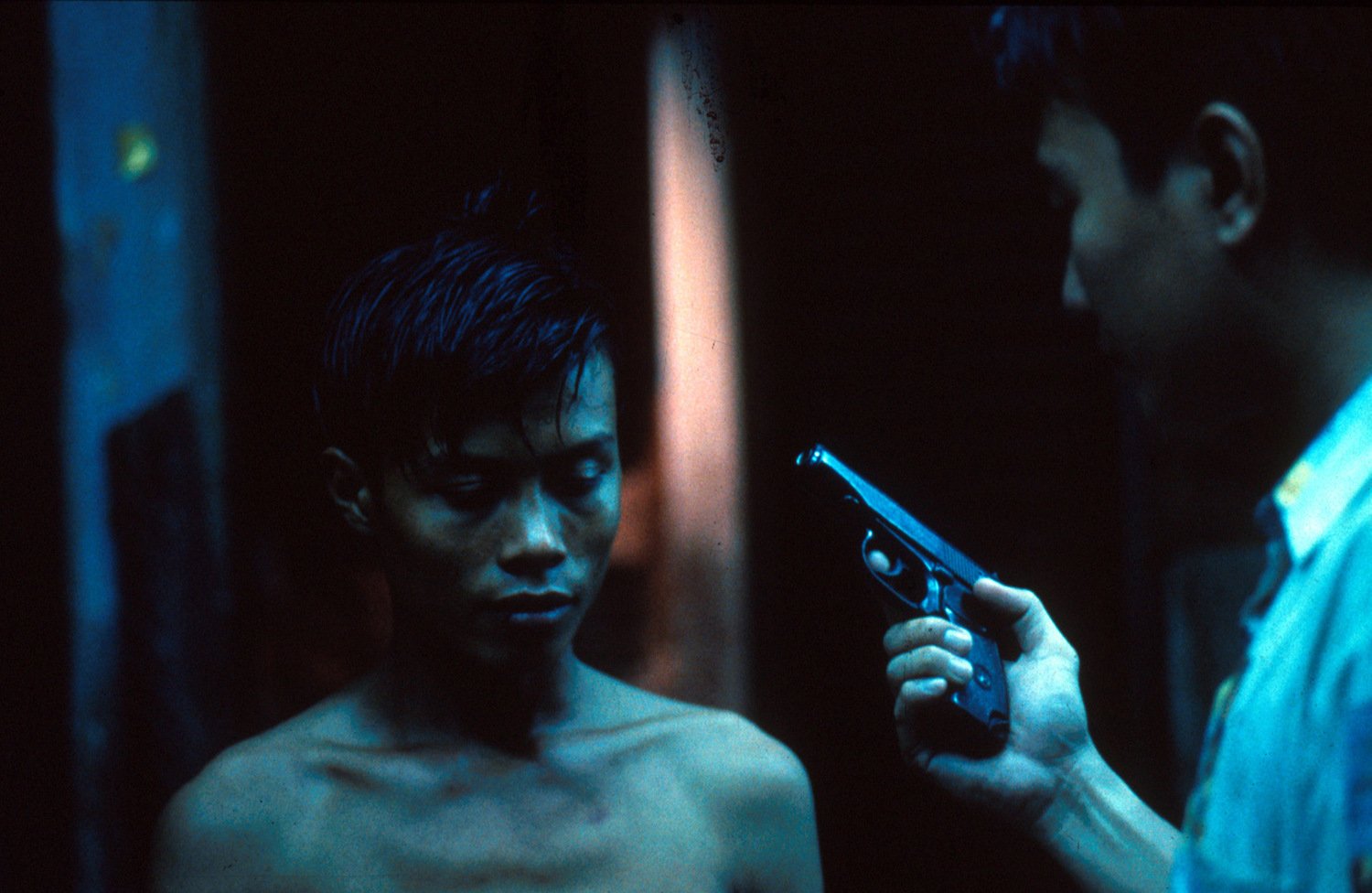
His determination is simple: earn enough to reclaim the stolen cyclo and, with it, his life. But the cruel irony is that the theft traces back to the female boss herself – proof that his life was never his own. In Cyclo, poverty becomes possession: if you cannot afford to own your fate, someone with money will.
Though he tries to end his life with a gun, then by suffocation, he cannot go through with it. Instead, the suicidal attempt closes on a haunting image: the boy drenched in blue paint, a goldfish writhing in his mouth. Both displaced, both consumed – the fish ripped from water, the boy from his family. In a metropolis hierarchy, the big always swallows the small.
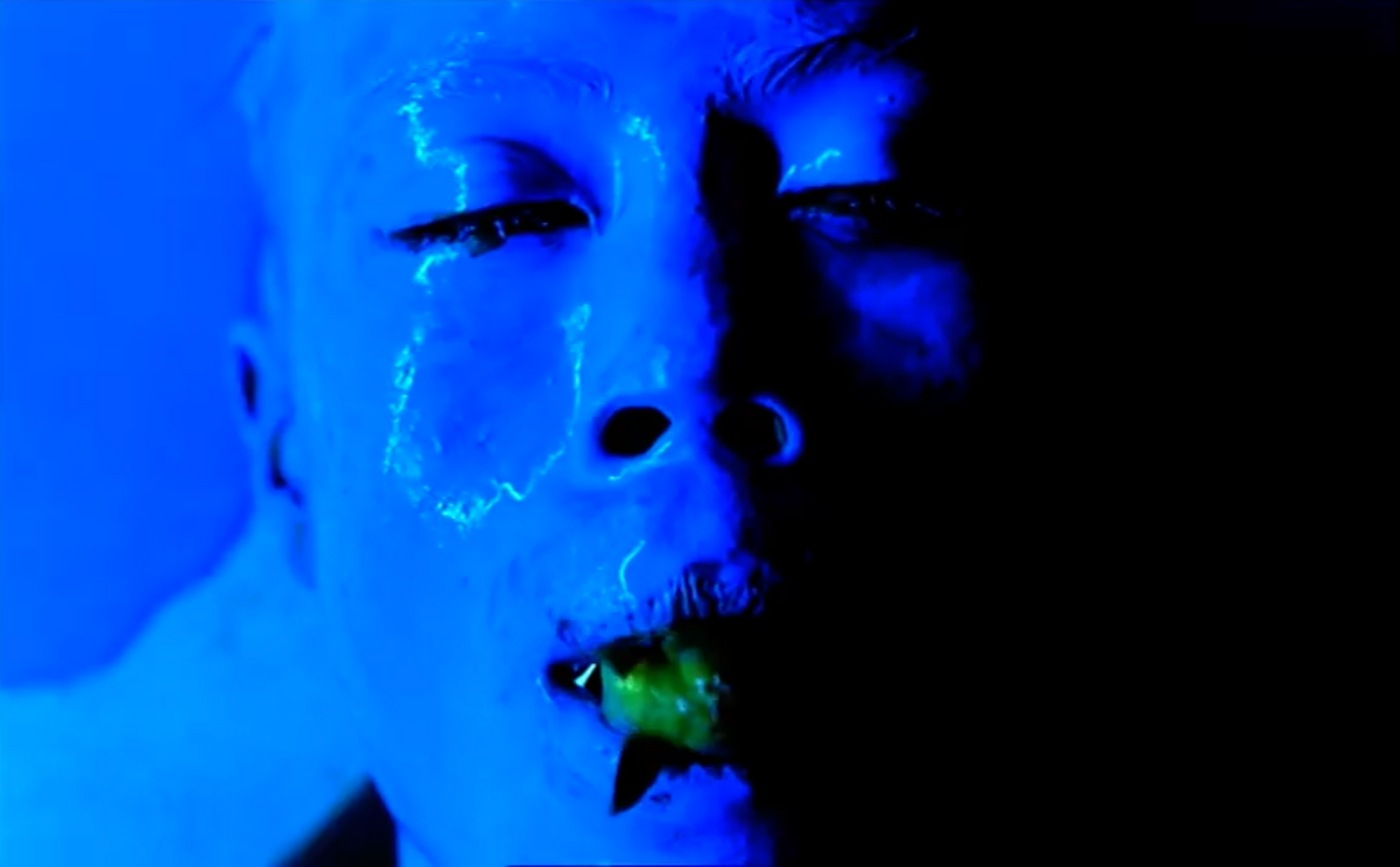
The insignificant fates
The film alternates between wide establishing shots and tight close-ups, contrasting the frenetic sprawl of Saigon with the confined interiors of its lower-class inhabitants.
Wide shots drift over Saigon’s streets, where motorbikes choke the air with exhaust, horns scream in every direction, and street vendors cry out into the chaos. It’s overwhelming, suffocating. A portrait of a city racing toward modernisation while leaving its most vulnerable behind.

Then the frame shifts inward. The camera moves unbearably close in cramped interiors: a family home pressed against a canal, or a single room carved from a fading French townhouse. Faces fill the lens, gestures linger too long, the intimacy turning claustrophobic. What is meant to be private space feels tight and airless, yet for these characters, it is still home.
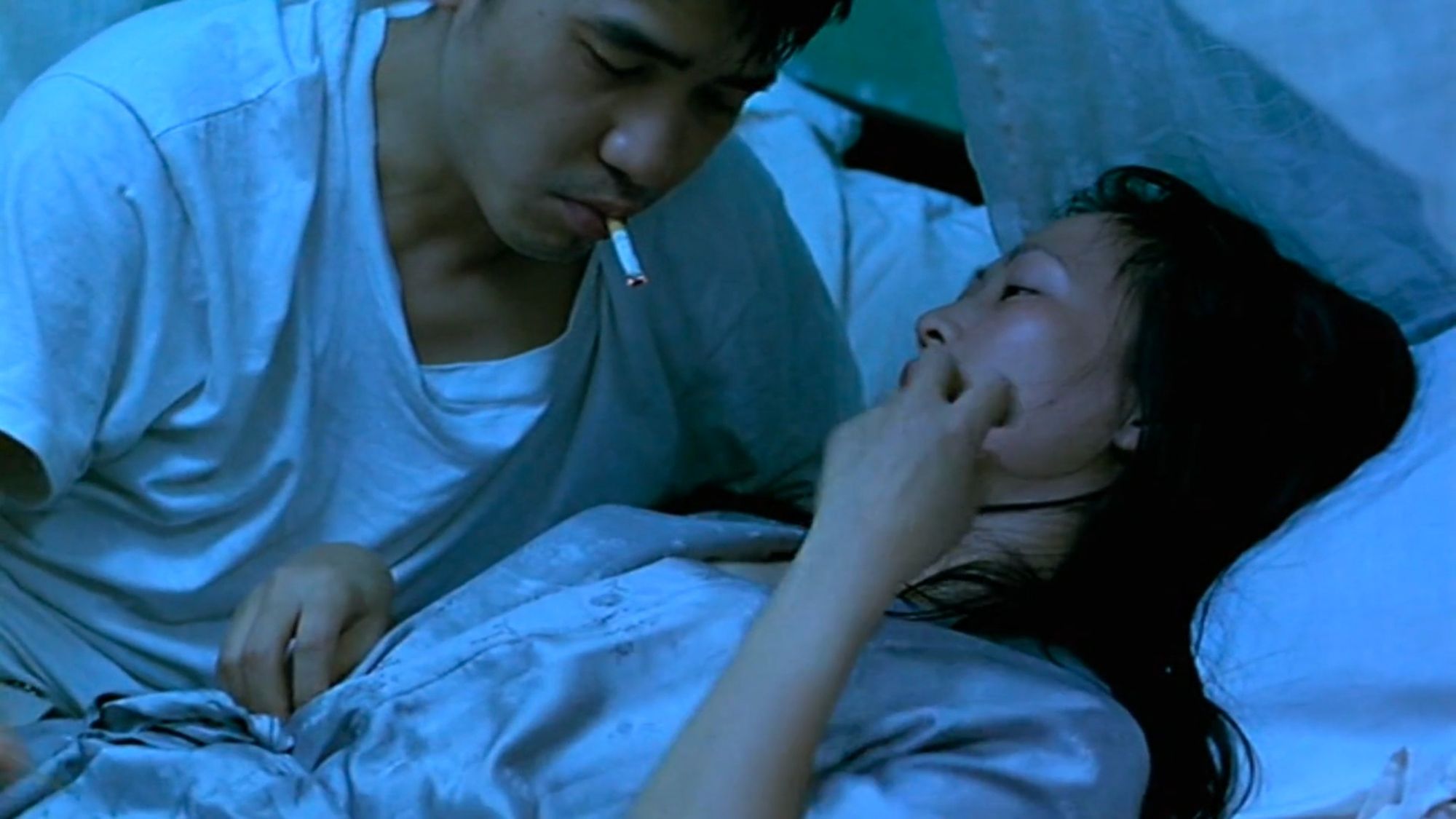
Life is elsewhere
Over time, the relationship between the poet-gangster and the sister developed. In one scene, they were on a date in a completely different setting from their usual life: at a concert night, dimly lit candles, Trinh Cong Son’s music in the air, cocktails and the embrace of a lover. But the scene cuts against what came before: a gang shootout, where the endless rattle of bullets is likened to a song of its own.
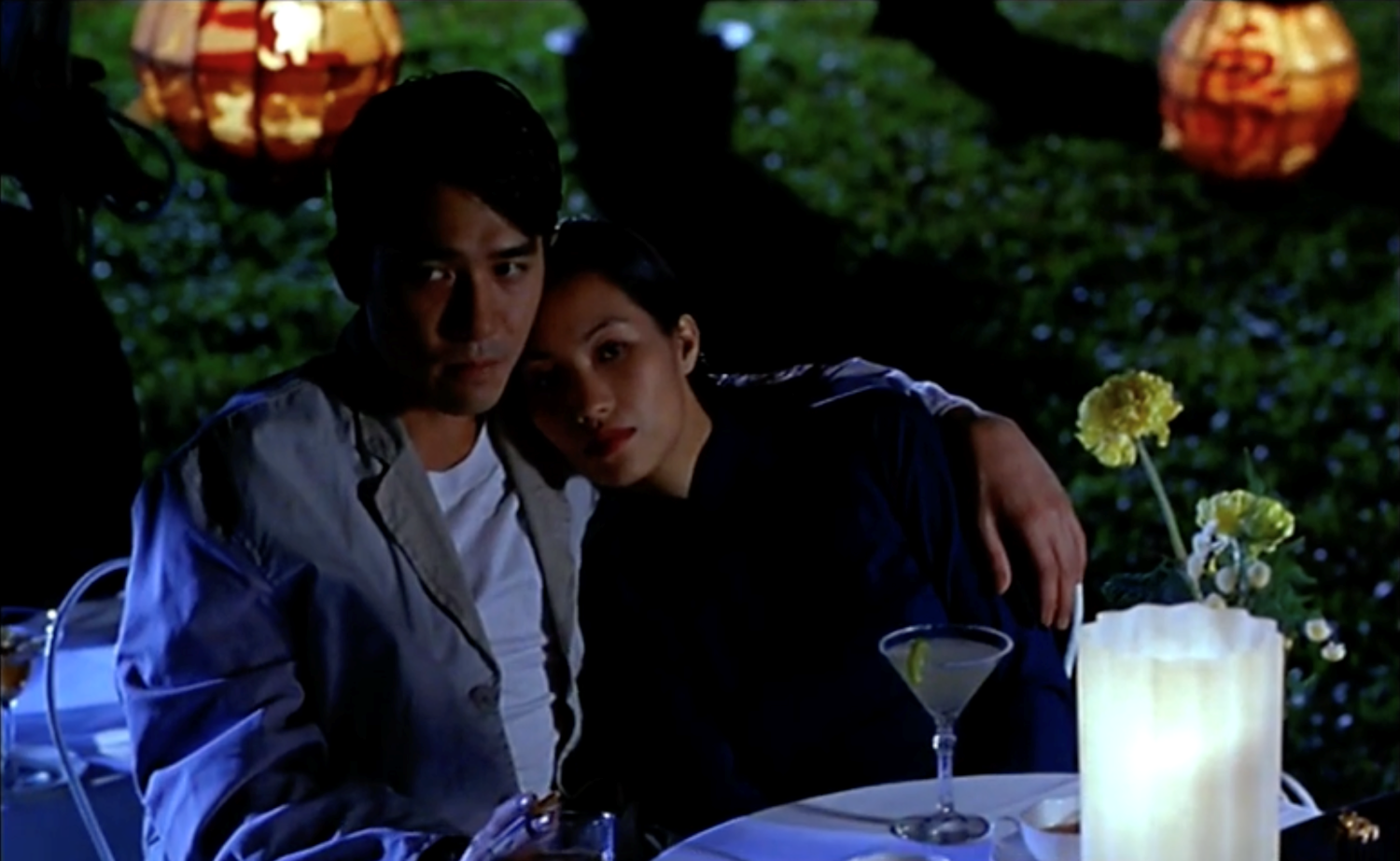
This clash between brutality and intimacy runs throughout Cyclo, in an almost sandwich-like gesture. A mother cradles her mentally ill child, before the frame shifts to the blood-soaked floors of a slaughterhouse used for drug smuggling. The city bursts into celebration on New Year’s Eve, only to be pierced by a fatal car crash. Lovers ride together into the countryside, while neon lights illuminate scenes of prostitution. Tran Anh Hung’s lens lingers on these collisions, pulling from the grit of suffering and the fleeting joy that makes survival possible. The film’s deepest yearning lies here: in the dream of another life, somewhere else, where gentleness might endure.
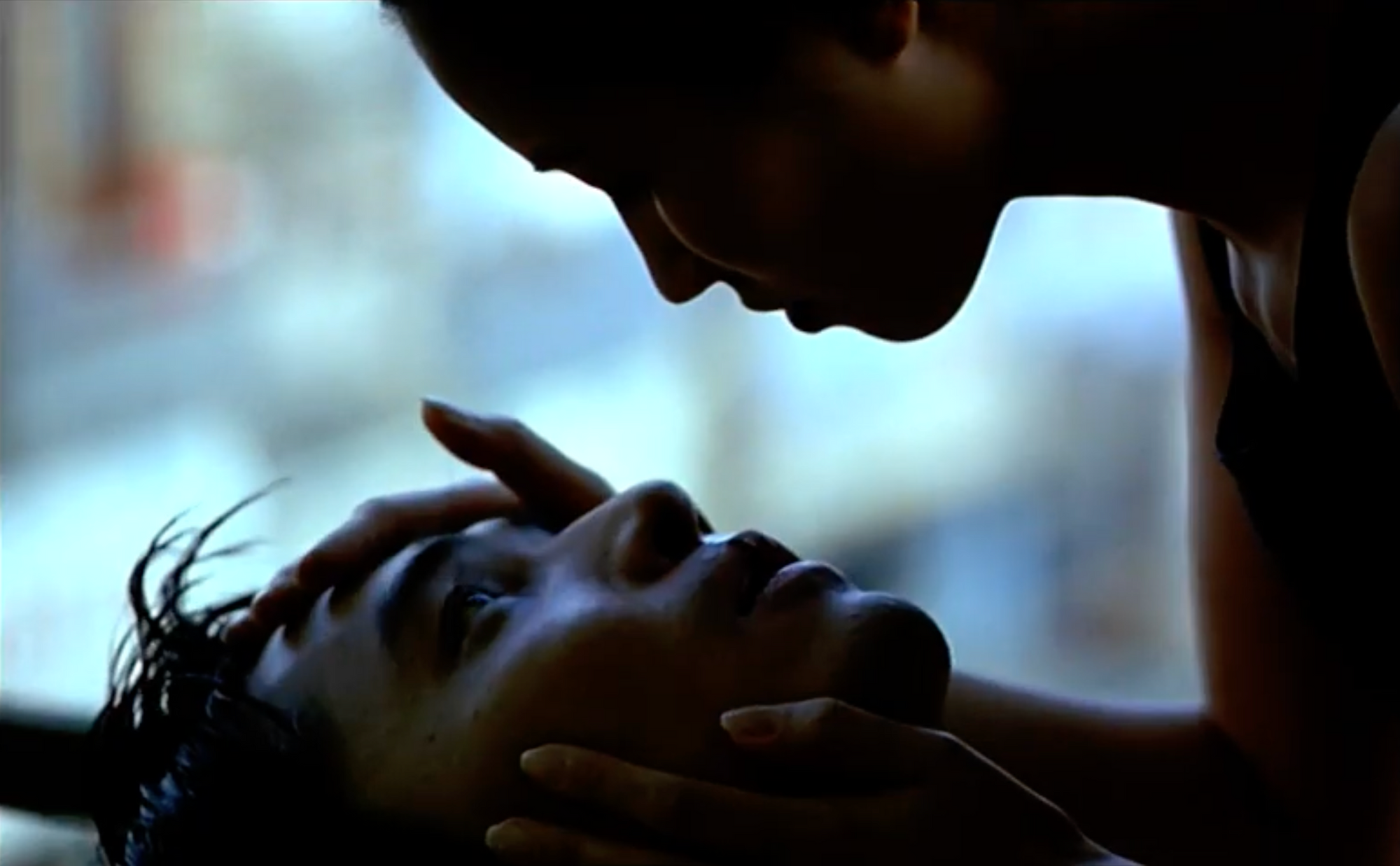
The film closes on that longing. As the new year begins, a gangster tells the boy he can return to driving cyclo. “Tao chúc mày sống bình thường” (I wish you a normal life), he says. In Cyclo, even normality is a luxury — something the poor cannot claim for themselves, only receive at the mercy of power.
Tran Anh Hung’s Cyclo remains, 30 years later, a devastatingly poetic portrait of Saigon’s underclass in the 1990s. A film that glimpses into the unnamed lives of the working poor with both rawness and lyricism.
